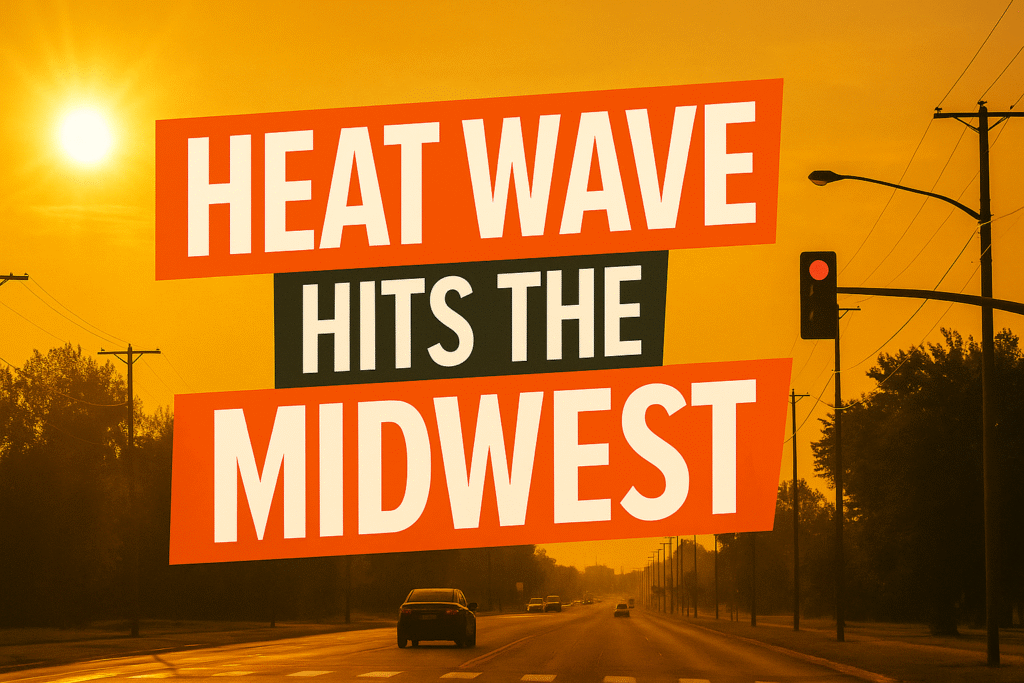Midwest Heat Wave 2025: Survival Tips as Temperatures Shatter Records
The Midwest is in the grip of one of the most extreme heat waves in history. July 2025 has already seen temperatures soaring past 110°F (43°C) in cities like Chicago, St. Louis, and Des Moines, shattering decades-old records. Heat advisories and emergency alerts are in effect across multiple states, prompting residents to seek shelter, conserve energy, and take precautions against heat-related illnesses.
Why Is This Heat Wave So Severe?
Meteorologists attribute the 2025 heat wave to a combination of a persistent high-pressure system, climate change-driven temperature anomalies, and dry soil conditions amplifying heat. This “heat dome” effect traps hot air over the region, creating stagnant, dangerously hot conditions that feel even worse due to humidity.
Health Risks During Extreme Heat
Prolonged exposure to high temperatures can cause a range of health issues, from mild dehydration to life-threatening conditions like heatstroke. Vulnerable populations — including the elderly, infants, outdoor workers, and those with preexisting conditions — face the greatest risks.
**Common heat-related illnesses include:**
- Heat exhaustion – dizziness, heavy sweating, weakness.
- Heatstroke – body temperature above 103°F (39°C), confusion, fainting (medical emergency).
- Dehydration – headache, fatigue, rapid heartbeat.
How to Stay Safe During the 2025 Heat Wave
To protect yourself and your loved ones during this heat crisis:
- Stay indoors during peak heat (10 a.m. – 6 p.m.).
- Drink plenty of water, avoiding alcohol and sugary drinks.
- Wear lightweight, loose-fitting clothing.
- Check on neighbors and elderly family members.
- Use fans or air conditioning — and visit public cooling centers if needed.
Energy Conservation During Peak Demand
Utility companies are urging residents to reduce power consumption to prevent grid overloads. Suggested measures include setting thermostats to 78°F (25°C) when home, using appliances during off-peak hours, and unplugging electronics when not in use.
Impact on Communities and Infrastructure
Beyond the personal toll, the heat wave is straining infrastructure. Roads are buckling under extreme heat, crops are at risk of damage, and water demand is spiking across municipalities. Emergency services are working around the clock to address heat-related calls.
Climate Change and the Future of Heat Waves
Experts warn that this Midwest heat wave could be a glimpse of the future. As climate change accelerates, extreme heat events are projected to become more frequent, longer-lasting, and more severe. Cities are being urged to invest in green infrastructure, cooling shelters, and urban tree canopies to help mitigate future risks.
Final Thoughts
The **Midwest Heat Wave 2025** is a sobering reminder of nature’s power and the importance of preparedness. Staying safe means staying cool, hydrated, and vigilant — while communities must work together to protect the most vulnerable. As this heat wave continues, awareness and action will be the keys to survival.



